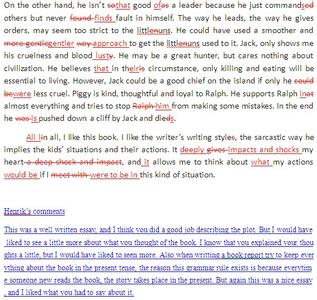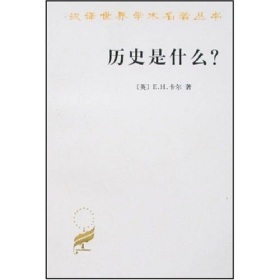蝇王英文读后感
First and foremost, as far as I am concerned, in exploring the breakdown into savagery of a group of boys free from the imposed moral constraints of civilization and society, Lord of the Flies dramatizes a fundamental human struggle: the conflict between the impulse to behave morally and the impulse to indulge in violence. The first set of impulses might be thought of as the “civilizing instinct”, which encourages people to work together toward common goals and behave peacefully; the second set of impulses might be thought of as the “barbarizing instinct”, or the instinct toward savagery, which urges people to rebel against civilization and instead seek anarchy, chaos, despotism, and violence.
What is more, I will present my opinion about the two main characters: Ralph and Jack.
Ralph is the athletic, charismatic protagonist of Lord of the Flies. Elected the leader of the boys at the beginning of the novel, Ralph is the primary representative of order, civilization, and productive leadership in the novel. Ralph’s power and influence over the other boys are extremely secure at first. However, as the book progresses and the group succumbs to savage instincts, Ralph’s position declines precipitously as Jack’s station rises. Ralph’s commitment to civilization and morality is strong, and his main wish is to be rescued and returned to the society of adults. For much of the novel, Ralph is simply unable to understand why the other boys would give in to base instincts of bloodlust and barbarism. The sight of the hunters chanting and dancing is baffling and distasteful to him.

Jack, the strong-willed, egomaniacal boy who is the novel’s prime representative of the instinct of savagery, violence, and power, is the antithesis of Ralph. From the beginning of the novel, Jack desires power above all other things. The first time he encounters a pig, he is unable to kill it. But Jack soon becomes obsessed with hunting and devotes himself to the task, painting his face like a barbarian and giving himself over to bloodlust. The more savage Jack becomes, the more he is able to control the rest of the group. By the end of the novel, Jack has learned to use the boys’ fear of the beast to control their behavior, giving Golding a chance to explore how religion and superstition can be used as instruments of power. Jack’s love of authority and violence are intimately connected, as each enables him to feel powerful and exalted.
Furthermore, I will tell you two themes I have found in this novel.
The important theme of the novel is the conflict between two competing impulses that exist within all human beings: the instinct to live by rules and to value the good of the group on the one hand; and the instinct to gratify one’s immediate desires, to act violently to obtain supremacy over others, and to enforce one’s will on the other hand. The conflict might also be expressed as order vs. chaos, reason vs. impulse, law vs. anarchy, or in any number of other ways, including the more generalized good vs. evil. Throughout the novel, the instinct of civilization is associated with goodness, while the instinct of savagery is associated with evil. Generally, the novel portrays the instinct of savagery as far more primal and fundamental to the human psyche than the instinct of civilization. Moral behavior, in Golding’s view, is often merely a forced imposition of civilization, rather than a natural expression of human individuality. When left to their own devices, the novel seems to argue, people will become cruel, wild, and barbaric. This idea of innate human evil is central to Lord of the Flies.
Another theme is loss of innocence. As the boys on the island progress from well-behaved, orderly children who hope to be researched to cruel, bloodthirsty hunters who have no desire to return to civilization, they naturally lose the sense of innocence that they possessed at the beginning of the novel. The painted savages in Chapter 12 who have hunted, tortured, and killed animals and human beings are a far cry from the simple children swimming in the lagoon in Chapter 3.But Golding does not portray this loss of innocence as something that is done to the children; rather, it results naturally from their increasing contact with the innate evil and savagery within themselves.
Last but not least, I also find out plenty of symbols from this novel. The conch shell is the first important discovery Piggy and Ralph make on the island, and they use it to summon the boys together after they are separated by the crash. As a result, it becomes a powerful symbol of civilization and order. The signal fire burns on the mountain, and later on the beach, to attract the notice of passing ships that might be able to rescue the boys. So it becomes a symbol for the boy’s connection to civilization. The beast, which frightens all the boys, stands for the primary instinct of savagery that exists within all human beings. Piggy is the most intelligent, rational boy in the group, and his glasses represent the power of science and intellectual endeavor in society.
As people always could not face their own evil, so they made the tragedy happen again and again. The boys’ awareness of modern democracy in the cultivation of civil society has undergone a process of rapid decline of time. Its root lies in the degeneration of human nature and the separation of rational judgments and moral conscience.
 爱华网
爱华网
